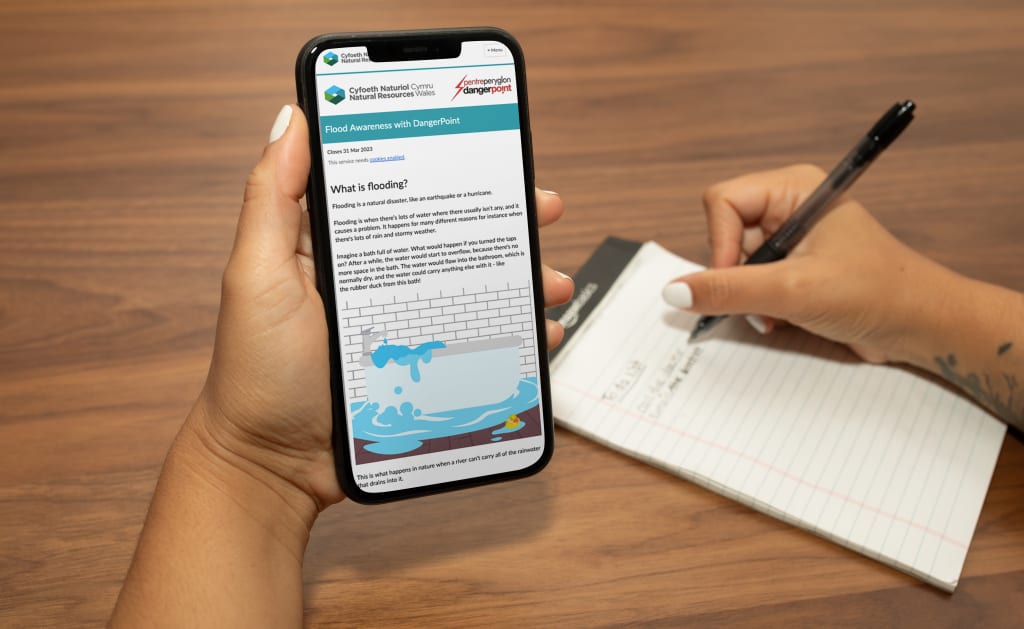
Public consultations are one of the most common ways that governments and public bodies engage with citizens about the policies, projects and plans that affect them most. In recent years, the predominance of digital tools have added a new dimension to running consultations.
The following article discusses the most effective ways to use digital tools to drive engagement and participation in public consultations.
Conducting Public Consultations

Public consultations are a process by which the public are asked to input their views on a given subject, usually via survey. In the context of public bodies and governments, consultations are often a statutory requirement before implementing a particular policy or local plan.
They are an opportunity for citizens to have their say on the policy developments that affect them and their communities most. They are also an opportunity to disseminate information to key stakeholders and citizens in a way that is formal and controlled. They allow those running the consultation to get feedback in real-time about how that information is being received and responded to.
Digital engagement tools have paved the way for a transformation in how public consultations are conducted, making it easier for citizens to find, be made aware of, and take part in consultations relevant to them:
“The Scottish Parliament has been making increased use of digital engagement tools such as Citizen Space, to facilitate committee inquiry engagement work. This has given the Parliament access to large amounts of structured data on public responses.” – Dr Adam Chalmers, University of Edinburgh.
Other benefits of utilising digital tools for effective public consultations include:
- Fostering a culture of transparency within the policy-making process.
- Increasing the level of trust that citizens have in public bodies.
- Allowing voices that may otherwise be marginalised to be better represented within planning.
- Educating the public as a whole about upcoming projects, and often increases levels of support.
- Allowing potential issues and conflicts to be addressed earlier in the process.
Using the Gunning Principles
The benefits of an effective public consultation process are well-established. This is why, in the UK, there are specific standards that statutory consultations are expected to meet in order to be considered legitimate. These are called the Gunning Principles.
In brief, the Gunning Principles state that:
- Public consultations must occur early into the policy-making process, while the plan, policy or project is still being developed.
- Enough information must be provided for the public to properly consider the issue from all angles.
- Citizens must have enough time to both consider and respond to the consultation.
- Those responses must be considered, and must be shown to have been considered, before the policy or plan is enacted.
Since the 1980s, the Gunning Principles have been a key framework for planning a consultation process. In 2025, digital engagement tools can be used to ensure a robust process for engaging citizens.
The Importance of Citizen Engagement

Citizen engagement is a term that denotes a range of interactions and dialogues between citizens and public bodies. While public consultations are one of the more common forms of citizen engagement, it can also include things as diverse as participatory mapping, budgeting, citizen juries and focus groups.
Engaging citizens from diverse communities and a wide range of backgrounds is essential to any public consultation. Citizen engagement – as opposed to community engagement – focuses specifically on the impact of a given project on the individual. As such, it is essential to get the perspectives of as many people as possible, involving them in the planning process.
Digital engagement platforms have significantly increased the potential “catchment” of citizen engagement activities. One example is that of Police Scotland, who in recent years have increasingly utilised digital tools and developed a comprehensive digital engagement strategy. Since then, they have seen a 500% increase in response rates to public consultations.
Arnstein’s Ladder of Participation
When considering public consultation planning, Arnstein’s ladder of participation is a useful way to consider what true citizen participation looks like in practice.
The ladder splits citizen engagement into eight rungs split and three sections. The higher a given engagement practice is on the ladder, the more meaningful the engagement is as a whole. The ladder helps engagement practices move away from tokenism, where consultation practices are a simple matter of box-ticking, and into true citizen ownership of democratic processes.
This principle is just as vital when using digital engagement platforms to foster participation. The use of technology should aid rather than replace a comprehensive inclusion strategy, going beyond mere convenience and surface-level interactions. Instead, they should empower citizens by giving them access to the tools they need to participate fully.
How Has Digital Engagement Transformed the Consultation Process?

Digital democracy – otherwise known as civic tech or edemocracy – are terms that have been used for decades to describe the rise of digital communications and digital engagement with democratic processes.
In recent years, digital democracy has seen a radical uptake within governments around the world. By using online tools to make public participation more accessible, digital engagement has become a key part of any community or citizen engagement strategy.
Advantages of Online Communication
The shift to digital has made it easier for people who may not otherwise have been involved in these processes to have a voice in public policy development and public service design.
Research published last year on the subject of what digital democracy has done for the democratic process found:
“As digital technologies continue to evolve at a rapid pace, they are reshaping the ways in which citizens engage with political processes, disseminate information, and operate democratic institutions. These technologies have the potential to enhance democratic engagement in a number of ways.”
Some of the benefits of increased digital engagement have been:
- It is more accessible for those who may struggle to attend in-person events, such as those with physical disabilities or who otherwise cannot travel.
- It is possible to reach a greater number of people when advertising the consultation online.
- It is often simpler to ensure your consultees are representative of a given community via a digital platform.
- It is cost-effective, requiring fewer resources and less staffing than an in-person event.
- Data can be analysed consistently in a uniform manner.
However, it is important to remember that there are also potential issues with increased digital engagement. Those who don’t have the internet or struggle to use a computer may find online consultation processes less accessible. Online spaces are also uniquely vulnerable to infiltration, such as those imitating residents etc. It is possible to mitigate these issues, but any consultation process must keep them in mind when planning engagement activities.
How to Increase Public Participation In Consultations Using Digital Engagement: The First 4 Steps

Notices
Public notices are the first port of call for ensuring widespread awareness of an ongoing consultation. Notices should outline the purpose of the consultation, expected outcomes, and sometimes what follow-up actions the public can take. Where a consultation notice should be posted somewhat depends on the subject of the consultation.
Where a policy or plan will affect a specific area, it is useful (and sometimes a statutory obligation) to post notice around the area itself. If the area is residential, letters can be posted to ensure everyone is aware of the ongoing consultation. Local newspapers are another common method of getting the word out, where notices can be published in the weeks before a consultation process begins.
However digital notices, shared via government websites, email newsletters, and social media platforms, have become the new standard. These tools ensure quicker dissemination of information, greater accessibility, and often a wider reach. Social media posts and targeted online ads can further amplify visibility and engagement.
Social Media
Social media is a key way to drive engagement in a public consultation process. The first step is advertising the consultation on the social media pages of the public bodies involved. Different social media platforms have somewhat different audiences, so can be used in tandem to get an array of viewpoints:
In the UK, Facebook is a good way of targeting residents and getting organic shares from interested parties. A recent study showed that the vast majority of people want to use social media to raise awareness of social causes that are important to them.
LinkedIn is a platform that is more useful for engaging specific stakeholders, such as local business leaders or relevant campaign groups.
Other platforms like Instagram could be used to target a younger audience, which may be useful if you are trying to get a more representative voice from your consultation.
As well as advertising consultations on social media, it can also be a way to feedback the results of the consultation in an easily digestible format. Digital analysis tools can allow complex information to be easily understood and translated for a mass audience.
As well as being a way of keeping existing consultees engaged, this feedback can encourage other citizens to get involved with the democratic process in future consultations.
Town Hall Meetings
Ahead of the start of the official consultation process, a ‘town hall meeting’ is an important step in informing the public about a given issue.
Meetings allow information to be disseminated quickly to a large number of people. They are also a good way to get a better idea of what issues the consultation is likely to bring up ahead of time. It can allow those running the consultation to see where the gaps are in the information they’re providing. This can ensure the process is fully adhering to the second Gunning principle.
Town hall meetings are another element of the consultation process that has been changed significantly by increased access to digital tools. While many town hall meetings still happen in-person, it is now very common for them to be streamed or even recorded. This allows those who cannot attend physically to engage. This combination of traditional settings with digital tools allows for the largest possible attendance, and can significantly increase the diversity of attendees.
Community Leaders
Making sure your public consultations adequately reflect the demography of an area is one of the most important considerations in this process. While the methods above can reach many members of the public, for some communities it is also useful to reach out to specific community leaders.
Community leaders comprise a vast range of people, from local councillors to Imams to TARA chairs. Who you will need to engage depends on the policy, plan or project itself. Digital solutions can make this outreach even more effective. Email campaigns or virtual meetings can streamline communication with leaders, while dedicated engagement tools allow leaders to share consultation details directly with their networks. Convincing leaders of the consultation’s value often results in higher participation rates from their communities.
Have a Digital Engagement Strategy

Have a comprehensive digital engagement strategy in place for the start of the consultation process. There are multiple uses for digital tools in the democratic process mentioned above, but having a complete plan of each step will make sure you have considered each aspect of the process.
Digitally engaging citizens presents its own challenges. Make sure you have a plan to address each of these challenges. Where one may struggle to create content that is adequately informative, engaging and asks the right questions, a good digital engagement platform can give you the tools to address these gaps.